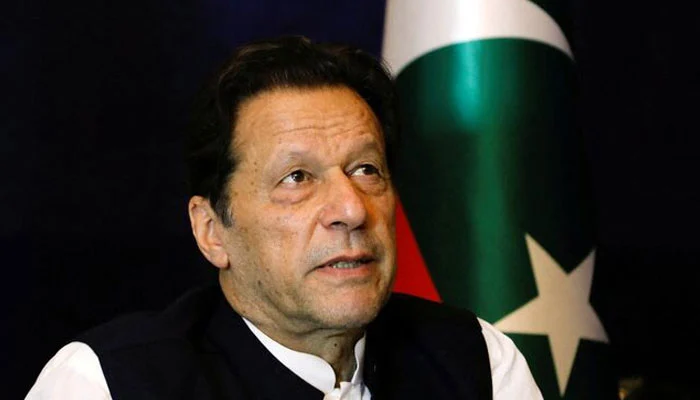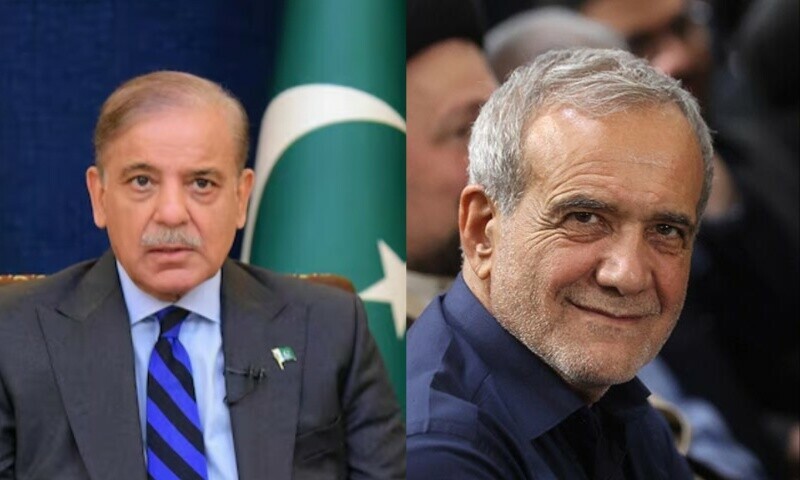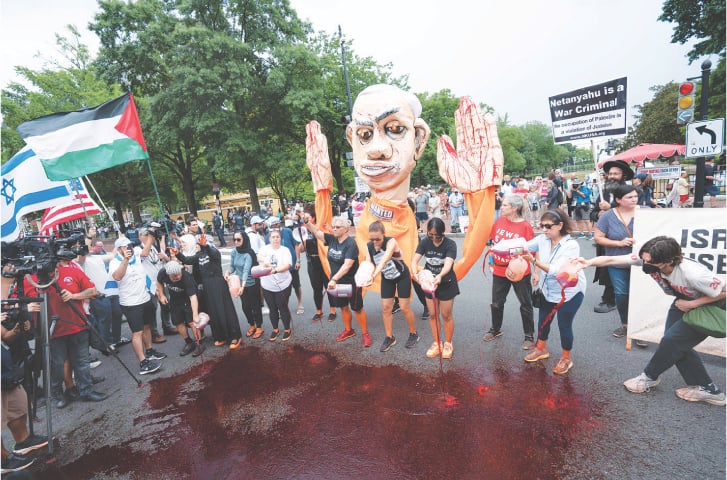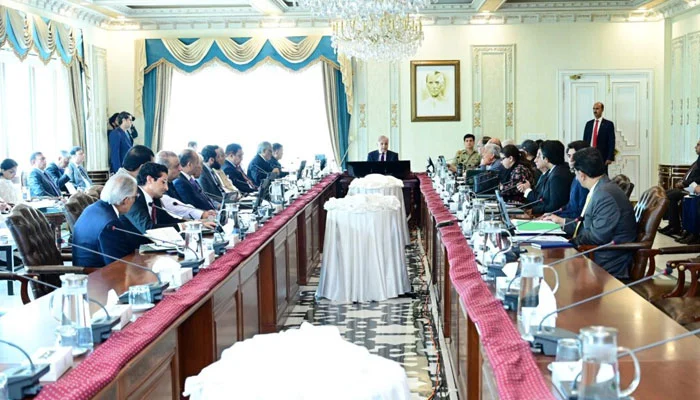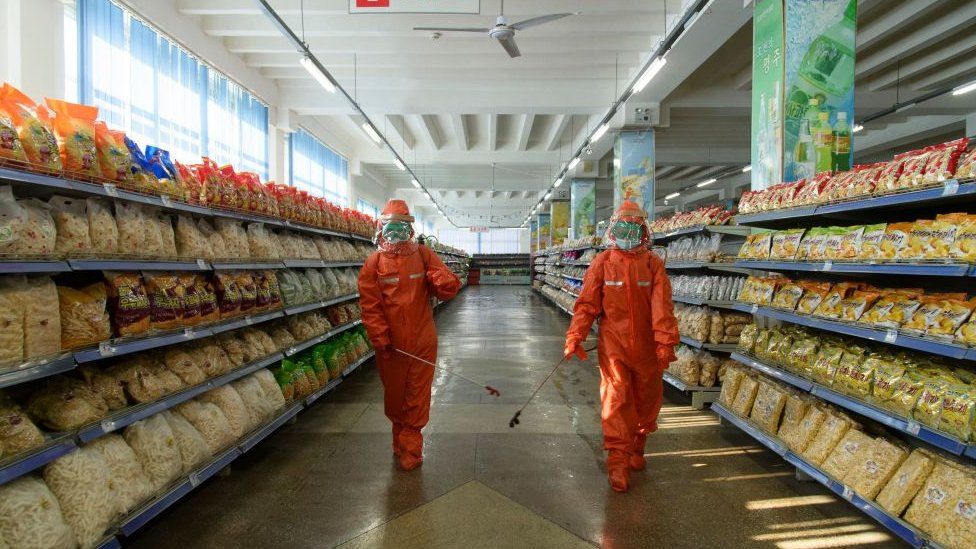
Mr Kim called for an all-out battle to tackle the spread of the virus during an emergency meeting on Saturday.
It comes after officials announced the first confirmed cases on Thursday – although experts believe the virus has likely been circulating for some time.
There are fears a major outbreak could have dire consequences in North Korea.
Its population of 25 million is vulnerable due to the lack of a vaccination programme and poor healthcare system.
And on Saturday, state media reported that there had been half a million cases of unexplained fever in recent weeks. The country has limited testing capabilities so most Covid cases are not confirmed.
That figure marked a major increase on the numbers given on both Friday and Thursday, potentially providing some indication of the scale of North Korea’s outbreak.
“The spread of the malignant epidemic is [the greatest] turmoil to fall on our country since the founding,” the official KCNA news agency quoted Mr Kim as saying.
He blamed the crisis on bureaucratic and medical incompetence, and suggested lessons could be learnt from the response of countries like neighbouring China.
State media reports that 27 people have died since April after suffering a fever.
The reports do not say whether they tested positive for Covid, apart from one death in the capital Pyongyang which was confirmed to be a case of the Omicron variant.
The unprecedented admission on Thursday marked the end of two years of North Korean claims to be free of Covid.
The secretive country rejected offers from the international community to supply millions of AstraZeneca and Chinese-made jabs last year. Instead, it claimed it had controlled Covid by sealing its borders early in January 2020.
It shares land borders with South Korea and China, which have both battled outbreaks. China is now struggling to contain an Omicron wave with lockdowns in its biggest cities.
At a meeting outlining new Covid rules on Thursday, Mr Kim was seen wearing a face mask on television for what was believed to be the first time.
He ordered “maximum emergency” virus controls, which appeared to include orders for local lockdowns and gathering restrictions in workplaces.
South Korea has said it offered humanitarian aid after Thursday’s announcement, but Pyongyang is yet to respond.


